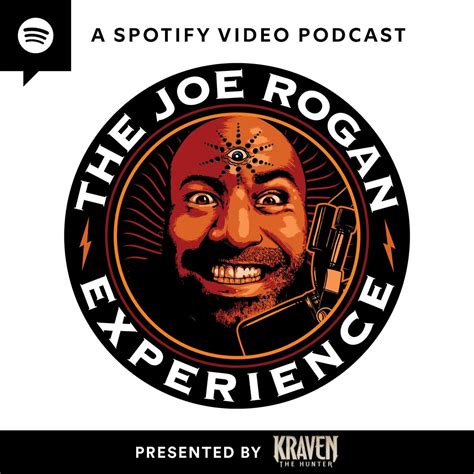
Joe Rogan, the influential podcast host, is signaling a shift in his views on religion, expressing a newfound openness to the possibility of a higher power and the potential benefits of faith, a notable departure from his previously skeptical stance.
Joe Rogan, host of the wildly popular podcast “The Joe Rogan Experience,” has sparked considerable discussion with recent comments suggesting a reconsideration of his long-held skepticism toward religion. Known for his freewheeling conversations and often critical perspective on organized religion, Rogan now appears to be softening his stance, expressing a greater openness to the potential value and even the possible existence of a higher power.
This shift in perspective emerged during a recent episode of his podcast, where Rogan engaged in a conversation about the nature of reality, consciousness, and the human experience. While specifics of the conversation vary depending on interpretation, multiple reports indicate that Rogan entertained the notion of something beyond the purely material world and acknowledged the positive impact that faith can have on individuals and communities.
“I don’t know what’s going on,” Rogan admitted during the podcast. “I am becoming more and more open to the idea that there’s something that we don’t understand.” This statement, while not an outright embrace of any particular religion, represents a significant departure from his earlier, more dismissive views. Previously, Rogan often characterized religious belief as a product of wishful thinking or societal conditioning.
The shift in Rogan’s thinking is generating significant buzz online, with observers speculating on the reasons behind the change. Some attribute it to Rogan’s age and life experiences, suggesting that he may be seeking deeper meaning as he gets older. Others point to the influence of his guests, many of whom are scientists, philosophers, and spiritual leaders who have challenged his previous assumptions. Regardless of the cause, Rogan’s evolving views on religion are likely to resonate with his vast audience, prompting further discussion and introspection on the role of faith in modern society.
Rogan’s openness contrasts sharply with some of his past statements. He had previously expressed skepticism about the existence of God and questioned the validity of religious doctrines. However, his recent comments suggest a willingness to entertain different perspectives and explore the possibility of something beyond the material world. This exploration is not necessarily an endorsement of any particular religion. Instead, it reflects a broader curiosity about the nature of reality and the human condition.
The podcast host’s influence is undeniable. “The Joe Rogan Experience” reaches millions of listeners worldwide and covers a wide range of topics, from science and technology to politics and culture. Rogan’s views often carry significant weight, particularly among his younger audience. A shift in his perspective on religion could therefore have a ripple effect, influencing how his listeners think about faith, spirituality, and the meaning of life.
One factor that might have contributed to Rogan’s shift is the increasingly complex and interconnected world. As scientific advancements continue to push the boundaries of human understanding, some individuals find themselves grappling with questions that science alone cannot answer. These questions often lead them to explore philosophy, spirituality, and religion in search of meaning and purpose. Rogan, who is known for his intellectual curiosity and his willingness to explore diverse perspectives, may be experiencing a similar journey.
Another possible explanation is the growing recognition of the psychological and social benefits of religion. Studies have shown that religious belief can be associated with increased happiness, reduced stress, and stronger social connections. Rogan, who has often spoken about the importance of mental and physical well-being, may be drawn to these potential benefits.
It’s important to note that Rogan’s evolving views on religion do not necessarily indicate a conversion to any particular faith. He has not declared himself a believer in any specific religious doctrine or dogma. Instead, he appears to be engaged in a process of exploration and questioning, seeking to understand the role of faith in human life and the potential for something beyond the material world.
“I’m not saying I believe in God,” Rogan clarified. “But I’m saying I’m open to the possibility.”
The potential ramifications of Rogan’s shift are substantial. As a prominent cultural figure, his changing views could influence the perspectives of millions of listeners, particularly those who may have previously dismissed religion as irrelevant or outdated. By openly questioning his own assumptions and exploring the possibility of faith, Rogan is encouraging his audience to do the same. This could lead to a greater understanding of religious beliefs and practices, as well as a more nuanced and respectful dialogue about the role of faith in society.
In conclusion, Joe Rogan’s evolving views on religion represent a notable shift in perspective for the influential podcast host. While he has not embraced any particular faith, his newfound openness to the possibility of a higher power and the potential benefits of faith could have a significant impact on his listeners and the broader cultural conversation about religion and spirituality. His exploration reflects a growing trend of questioning and seeking meaning in a world that is becoming increasingly complex and uncertain.
In-Depth Analysis and Expanded Context:
Joe Rogan’s influence extends far beyond the realm of podcasting. He is a cultural commentator, comedian, martial arts enthusiast, and entrepreneur. His podcast, “The Joe Rogan Experience,” is one of the most popular in the world, attracting millions of listeners with its long-form interviews and freewheeling conversations. Rogan’s ability to engage with a wide range of guests on diverse topics has made him a highly influential figure, particularly among younger audiences.
His previous stance on religion was generally characterized by skepticism and a reliance on scientific evidence. He often challenged religious doctrines and questioned the validity of faith-based beliefs. However, his recent comments suggest a softening of this stance, a willingness to entertain different perspectives, and an acknowledgment of the potential value of religion.
This shift in perspective is not entirely surprising, given Rogan’s intellectual curiosity and his willingness to explore diverse perspectives. He has hosted numerous guests on his podcast who have challenged his assumptions and encouraged him to think differently about the world. These guests have included scientists, philosophers, spiritual leaders, and experts in various fields. Through these conversations, Rogan has been exposed to a wide range of ideas and perspectives, which may have contributed to his evolving views on religion.
One factor that may have influenced Rogan’s shift is the growing awareness of the limitations of science in addressing fundamental questions about the nature of reality and the human condition. While science has made remarkable progress in understanding the physical world, it cannot answer questions about meaning, purpose, and the existence of consciousness. These questions often lead individuals to explore philosophy, spirituality, and religion in search of answers.
Another factor is the increasing recognition of the psychological and social benefits of religion. Studies have shown that religious belief can be associated with increased happiness, reduced stress, stronger social connections, and a greater sense of purpose in life. These benefits may be particularly appealing in a society that is increasingly characterized by social isolation, anxiety, and a lack of meaning.
Rogan’s evolving views on religion also reflect a broader trend of questioning and seeking meaning in a world that is becoming increasingly complex and uncertain. Many individuals are dissatisfied with traditional institutions and ideologies and are searching for alternative ways to make sense of their lives and the world around them. This search often leads them to explore different spiritual practices, philosophical perspectives, and religious traditions.
It is important to emphasize that Rogan’s shift in perspective does not necessarily indicate a conversion to any particular faith. He has not declared himself a believer in any specific religious doctrine or dogma. Instead, he appears to be engaged in a process of exploration and questioning, seeking to understand the role of faith in human life and the potential for something beyond the material world.
The implications of Rogan’s evolving views on religion are potentially significant. As a highly influential figure with a large and diverse audience, his changing perspectives could influence the way millions of people think about faith, spirituality, and the meaning of life. By openly questioning his own assumptions and exploring the possibility of something beyond the material world, Rogan is encouraging his audience to do the same. This could lead to a greater understanding of religious beliefs and practices, as well as a more nuanced and respectful dialogue about the role of faith in society.
However, it is also important to acknowledge the potential risks associated with Rogan’s influence. His views on religion are not necessarily based on careful research or theological expertise. He is primarily a commentator and interviewer, not a religious scholar. Therefore, his perspectives should be viewed with caution and not taken as definitive statements about the nature of religion or the existence of God.
Furthermore, Rogan’s influence could potentially be used to promote harmful or misleading beliefs. He has been criticized in the past for platforming controversial figures and spreading misinformation. It is therefore important to be critical of the information he presents and to seek out diverse perspectives from reliable sources.
Despite these potential risks, Rogan’s evolving views on religion represent a positive development in the broader cultural conversation about faith and spirituality. By openly questioning his own assumptions and exploring the possibility of something beyond the material world, he is encouraging his audience to do the same. This could lead to a greater understanding of religious beliefs and practices, as well as a more nuanced and respectful dialogue about the role of faith in society.
Ultimately, the impact of Rogan’s shift on religion will depend on how his audience responds to his evolving views. If they are willing to engage in critical thinking and explore different perspectives, it could lead to a more informed and nuanced understanding of faith and spirituality. However, if they simply accept Rogan’s views without question, it could potentially lead to the spread of misinformation or harmful beliefs.
It is therefore important to approach Rogan’s evolving views on religion with a critical and discerning eye. Listen to his conversations, consider the perspectives of his guests, and do your own research. By engaging in this process of critical thinking, you can arrive at your own informed conclusions about faith, spirituality, and the meaning of life.
Frequently Asked Questions (FAQ):
1. What is the main point of the news article about Joe Rogan and religion?
The main point is that Joe Rogan, known for his generally skeptical views on religion, seems to be shifting his perspective. He is expressing a newfound openness to the possibility of a higher power and acknowledging the potential benefits of faith, a notable departure from his previous stance.
2. Has Joe Rogan converted to a specific religion?
No. The article emphasizes that Rogan has not declared himself a believer in any particular religious doctrine or dogma. He is described as being in a process of exploration and questioning, seeking to understand the role of faith in human life and the potential for something beyond the material world. He stated he is “open to the possibility” but not necessarily a believer.
3. What factors might be contributing to Joe Rogan’s shift in perspective on religion?
Several factors are suggested: his age and life experiences, the influence of his diverse podcast guests (scientists, philosophers, spiritual leaders), the limitations of science in addressing fundamental questions about meaning and purpose, and the growing recognition of the psychological and social benefits of religion.
4. How could Joe Rogan’s evolving views on religion impact his audience?
As a highly influential figure with a large and diverse audience, Rogan’s changing perspectives could influence the way millions of people think about faith, spirituality, and the meaning of life. By openly questioning his own assumptions and exploring the possibility of something beyond the material world, Rogan is encouraging his audience to do the same, potentially leading to a greater understanding of religious beliefs and practices, as well as a more nuanced and respectful dialogue about the role of faith in society. However, his views should not be taken as definitive statements.
5. Are there any potential risks associated with Joe Rogan’s influence on this topic?
Yes. The article acknowledges that Rogan’s views are not necessarily based on careful research or theological expertise. He has been criticized for platforming controversial figures and spreading misinformation. It’s important to be critical of the information he presents and seek out diverse perspectives from reliable sources. His influence could potentially be used to promote harmful or misleading beliefs.
Expanded Sections:
I. Rogan’s Previous Skepticism Explained:
To truly understand the significance of Rogan’s potential shift, one must understand his previously held views. For years, Rogan has presented himself as a champion of rationalism, empiricism, and scientific inquiry. This worldview often led him to express skepticism towards organized religion and traditional religious beliefs. He often questioned the lack of empirical evidence for the existence of God, the historical inaccuracies and inconsistencies within religious texts, and the potential for religious institutions to be used for control and manipulation.
He often engaged in debates on his podcast with guests who held religious views, challenging their beliefs and presenting arguments from a secular perspective. While he generally maintained a respectful tone, his skepticism was undeniable. He often highlighted what he perceived as the flaws and contradictions within religious doctrines, questioning the logic and rationality of faith-based beliefs.
This stance aligned him with a growing segment of the population that identifies as non-religious or “spiritual but not religious.” This group often rejects organized religion while still acknowledging a sense of wonder and mystery about the universe. Rogan’s skepticism resonated with this audience, making him a popular voice for those who questioned traditional religious norms.
His previous skepticism also stemmed from a concern about the potential for religious extremism and violence. He often pointed to historical examples of religious conflicts and atrocities as evidence of the dangers of blind faith. He argued that religious dogma can lead to intolerance and prejudice, hindering progress and understanding.
However, even within his skepticism, there were hints of openness. Rogan consistently expressed a curiosity about the nature of consciousness and the human experience. He often explored these topics with guests who held differing perspectives, from neuroscientists to philosophers to spiritual leaders. This willingness to engage in dialogue, even with those who held opposing views, suggests a deeper intellectual curiosity that may have ultimately contributed to his evolving perspective.
II. The Role of Guest Influence: A Closer Look:
The diverse range of guests featured on “The Joe Rogan Experience” has undoubtedly played a significant role in shaping Rogan’s views on various topics, including religion. He has hosted scientists who have presented evidence of the complexity and interconnectedness of the universe, philosophers who have explored the nature of consciousness and reality, and spiritual leaders who have shared their personal experiences and beliefs.
For example, conversations with physicists like Brian Greene may have prompted Rogan to consider the possibility of dimensions and realities beyond our immediate perception, potentially expanding his understanding of what is possible. Philosophers like Sam Harris, while known for their own criticisms of organized religion, have engaged Rogan in discussions about ethics, morality, and the search for meaning in a secular world. These conversations may have encouraged Rogan to consider alternative ways of finding purpose and value outside of traditional religious frameworks.
Furthermore, Rogan has interviewed individuals who have had profound spiritual experiences, such as near-death experiences or encounters with altered states of consciousness. These accounts, while often difficult to verify scientifically, may have opened Rogan’s mind to the possibility of realities beyond the material world.
It’s important to note that Rogan’s interviews are not always endorsements of the views expressed by his guests. He often challenges their beliefs and presents counterarguments. However, the sheer volume and diversity of perspectives he has been exposed to has likely broadened his understanding and challenged his previous assumptions.
The influence of his guests is not simply a matter of intellectual persuasion. Rogan often builds personal connections with his guests, fostering a sense of trust and rapport. This allows for more open and honest conversations, where guests feel comfortable sharing their most deeply held beliefs. This personal connection may have made Rogan more receptive to different perspectives, even those that challenged his own.
Ultimately, the influence of his guests is a testament to Rogan’s intellectual curiosity and his willingness to engage with diverse viewpoints. This openness to new ideas has likely played a crucial role in his evolving views on religion and spirituality.
III. The Psychological and Societal Benefits of Religion: An Exploration:
The article mentions the psychological and social benefits of religion as a potential factor influencing Rogan’s shift. This section delves deeper into these benefits.
Studies have consistently shown a correlation between religious belief and improved mental health. Religious individuals often report higher levels of happiness, life satisfaction, and overall well-being. This may be due to several factors:
- Sense of Purpose and Meaning: Religion provides a framework for understanding the world and one’s place within it. It offers answers to fundamental questions about life, death, and the universe, providing individuals with a sense of purpose and meaning that can be particularly valuable during times of hardship or uncertainty.
- Social Support: Religious communities offer a strong sense of social support and belonging. Regular attendance at religious services and participation in religious activities provides opportunities for social interaction and the formation of meaningful relationships. This social support can be particularly beneficial for individuals who are isolated or lonely.
- Coping Mechanisms: Religion provides individuals with coping mechanisms for dealing with stress, anxiety, and other challenges. Prayer, meditation, and other religious practices can help individuals to find inner peace and resilience in the face of adversity.
- Moral Framework: Religion provides a moral framework for guiding behavior and making ethical decisions. This framework can help individuals to develop a strong sense of right and wrong, leading to more responsible and fulfilling lives.
In addition to these psychological benefits, religion also offers several societal benefits:
- Charitable Giving: Religious individuals are often more likely to donate to charity and volunteer their time to help others. Religious organizations play a significant role in providing social services and addressing community needs.
- Community Building: Religious institutions often serve as centers for community activity, providing a space for people to come together and celebrate shared values and traditions.
- Moral Leadership: Religious leaders can play an important role in promoting ethical behavior and social justice. They can serve as moral compasses for their communities, advocating for the rights of the marginalized and challenging injustice.
It is important to note that the benefits of religion are not limited to any particular faith. While different religions may have different beliefs and practices, they often share common values such as compassion, empathy, and a commitment to serving others.
However, it is also important to acknowledge that religion can have negative consequences. Religious extremism, intolerance, and violence can lead to social division and conflict. Therefore, it is essential to approach religion with a critical and discerning eye, recognizing both its potential benefits and its potential risks.
IV. The Shifting Landscape of Spirituality in the 21st Century:
Rogan’s evolving views on religion reflect a broader trend of questioning and seeking meaning in the 21st century. As traditional institutions and ideologies lose their grip on society, many individuals are searching for alternative ways to make sense of their lives and the world around them. This search often leads them to explore different spiritual practices, philosophical perspectives, and religious traditions.
One prominent trend is the rise of “spirituality but not religion.” This phenomenon refers to individuals who identify as spiritual but do not adhere to any particular religious doctrine or dogma. They often seek to cultivate a sense of connection to something larger than themselves, whether it be nature, humanity, or the universe, but they reject the constraints and structures of organized religion.
This trend is driven by several factors:
- Distrust of Institutions: Many individuals have lost faith in traditional institutions, including religious organizations. They may perceive these institutions as being out of touch with modern values, hypocritical, or even corrupt.
- Emphasis on Individualism: Contemporary society places a strong emphasis on individualism and self-expression. Individuals are encouraged to find their own path and to define their own values, rather than blindly accepting the dictates of authority.
- Access to Information: The internet has made it easier than ever for individuals to access information about different spiritual traditions and practices. This has led to a greater awareness of the diversity of human spiritual experience and a willingness to explore alternative paths.
- Scientific Advancements: Scientific discoveries have challenged traditional religious explanations of the world, leading some individuals to question the validity of faith-based beliefs.
The rise of “spirituality but not religion” has created a new landscape of spiritual exploration. Individuals are no longer limited to the traditions of their upbringing. They are free to mix and match different beliefs and practices, creating their own personalized spiritual paths.
This can be a liberating and empowering experience, allowing individuals to find meaning and purpose on their own terms. However, it can also be challenging, as individuals are forced to navigate a complex and often contradictory landscape of spiritual information.
In this context, Rogan’s evolving views on religion are particularly relevant. As a prominent cultural figure, his willingness to explore different perspectives and challenge his own assumptions can inspire others to do the same. He provides a platform for diverse voices and perspectives, encouraging his audience to engage in critical thinking and to seek out their own truth.
However, it is important to remember that Rogan is not a spiritual guru or a religious scholar. His views should be taken as one perspective among many, not as definitive answers to the complex questions of faith and spirituality.
V. The Potential Downsides of Embracing Religion Without Critical Thinking:
While the previous sections have focused on the potential benefits of religion and the positive aspects of Rogan’s exploration, it’s crucial to address the potential downsides of embracing religion without critical thinking. A balanced perspective necessitates acknowledging the risks involved.
Blind faith, uncritical acceptance of religious dogma, and unquestioning adherence to religious authority can have detrimental consequences:
- Intolerance and Prejudice: Religious beliefs can be used to justify intolerance, prejudice, and discrimination against those who hold different beliefs or no beliefs at all. History is replete with examples of religious conflicts and persecutions driven by intolerance and the belief in one’s own religious superiority.
- Suppression of Dissent: Religious institutions can sometimes suppress dissent and discourage critical thinking, demanding unquestioning obedience to their doctrines. This can stifle intellectual growth and prevent individuals from developing their own independent beliefs.
- Justification of Violence: Religious beliefs can be used to justify violence and terrorism. Extremist groups often distort religious teachings to justify their actions, claiming that they are acting in accordance with God’s will.
- Rejection of Science: Some religious beliefs are incompatible with scientific evidence. This can lead to a rejection of scientific advancements and a resistance to progress.
- Emotional Manipulation: Religious leaders can sometimes use emotional manipulation to control their followers, exploiting their fears, vulnerabilities, and desires for belonging.
- Hindrance to Personal Growth: Rigid adherence to religious dogma can sometimes hinder personal growth and prevent individuals from fully exploring their potential. It can create a sense of guilt and shame, preventing individuals from embracing their individuality and pursuing their own passions.
Therefore, it is essential to approach religion with a critical and discerning eye. This means:
- Questioning Dogma: Do not blindly accept everything you are told. Question the doctrines and teachings of your religion and seek out alternative perspectives.
- Seeking Evidence: Demand evidence for the claims that are made. Do not accept assertions based solely on faith or authority.
- Promoting Tolerance: Respect the beliefs of others, even if you disagree with them. Recognize that there are many different paths to truth and that no one has a monopoly on wisdom.
- Embracing Science: Embrace scientific inquiry and recognize that science and religion are not necessarily incompatible.
- Developing Critical Thinking Skills: Cultivate your critical thinking skills so that you can evaluate information objectively and make informed decisions.
Rogan’s influence carries a significant responsibility. While his openness to exploring religion is commendable, it’s crucial that his audience approaches the topic with the same spirit of critical inquiry that Rogan often displays in his interviews. A healthy skepticism, combined with a genuine desire for understanding, is the best approach to navigating the complex and often contradictory world of faith and spirituality. The key is not to blindly accept or reject, but to engage in thoughtful, informed, and respectful dialogue.









